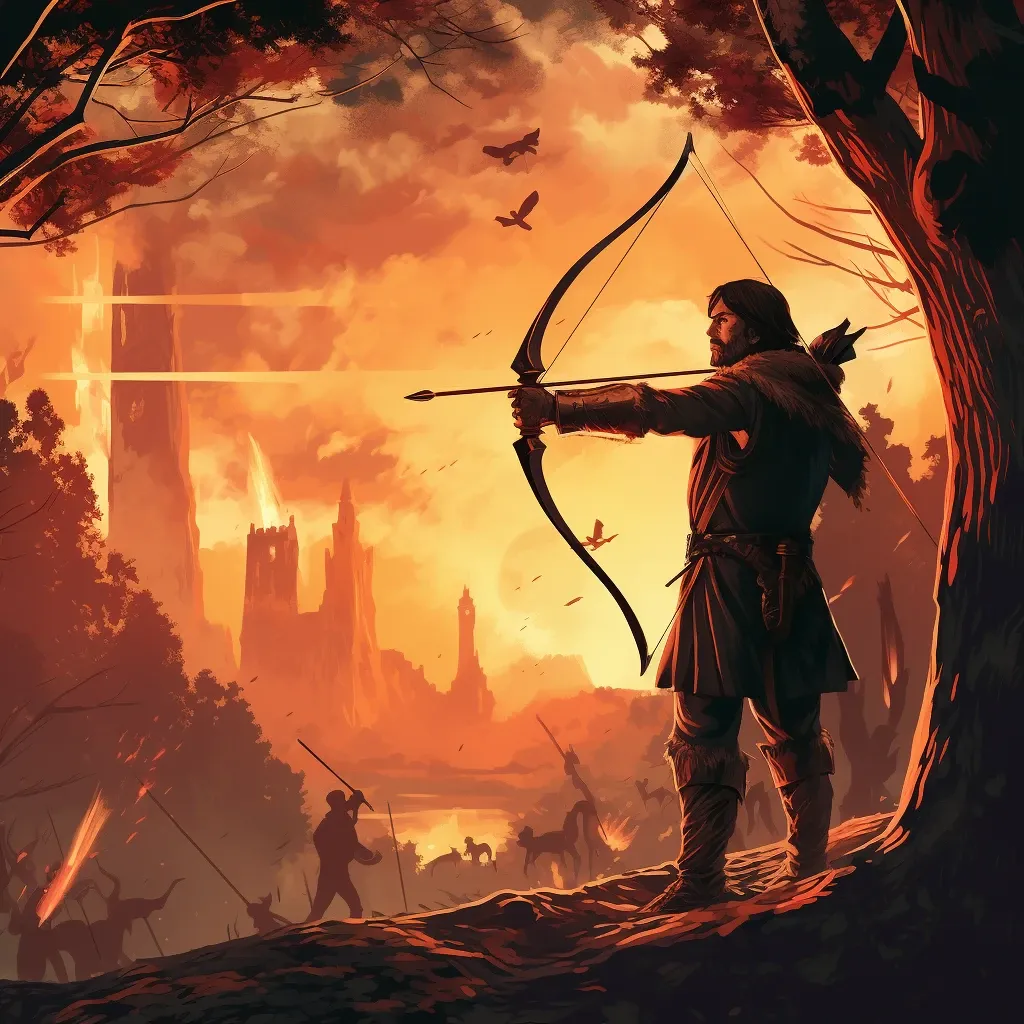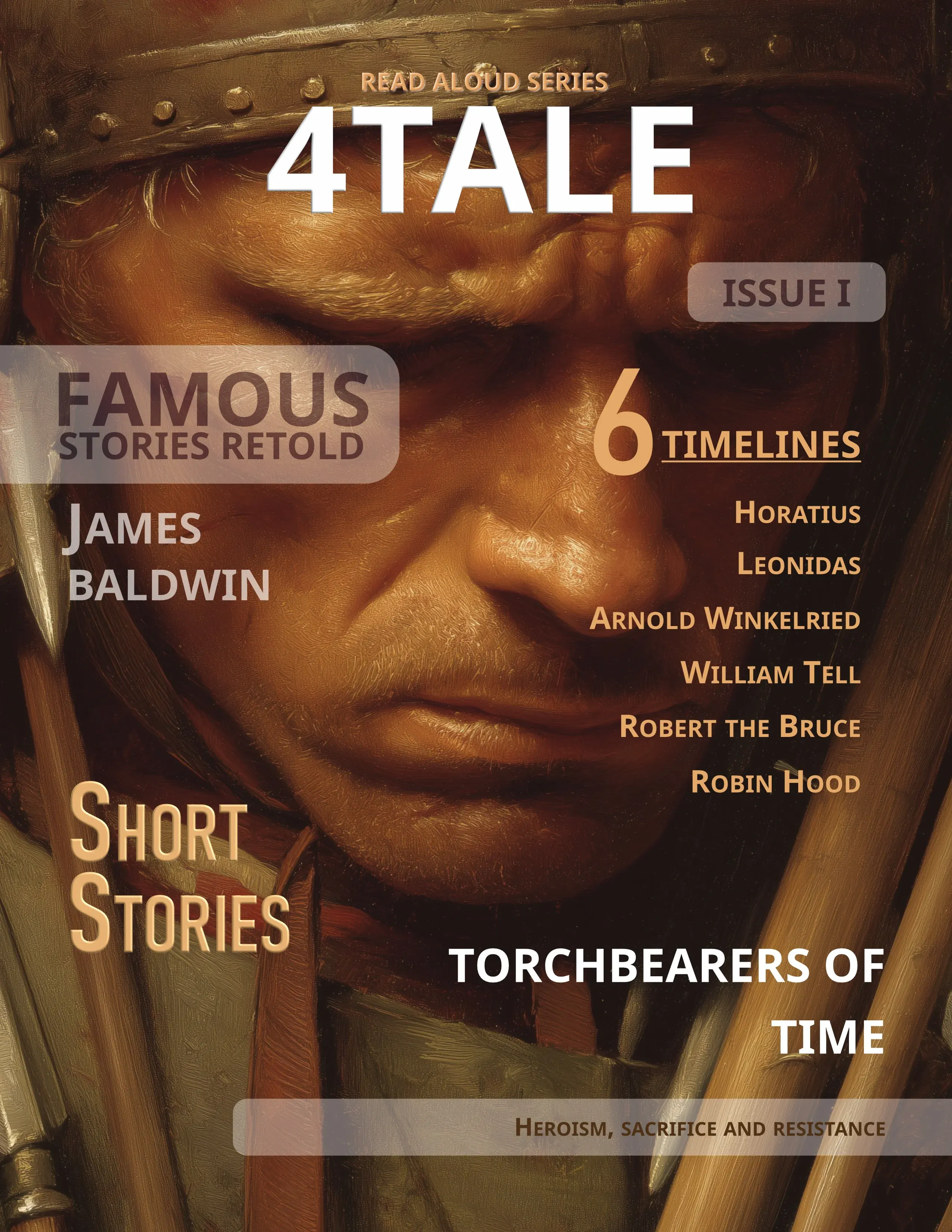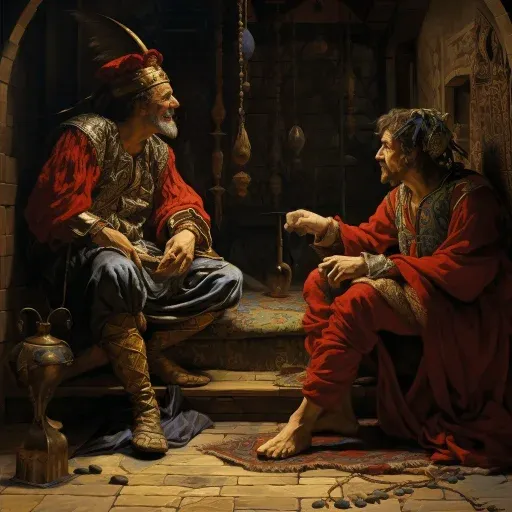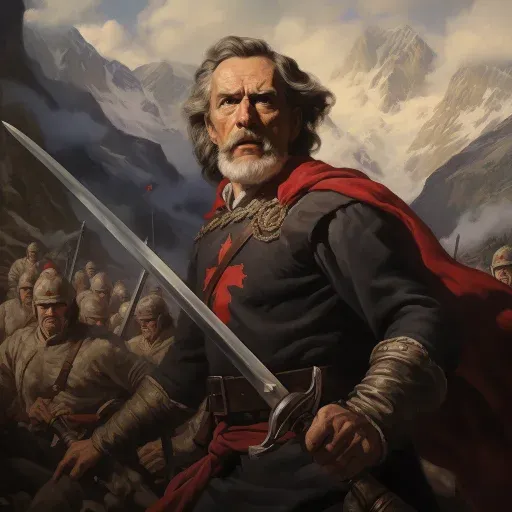BY JAMES BALDWIN
The Story of William Tell
Famous Stories Retold: Story 20 of 50

Heading

Tyranny: William Tell defied the tyrant Gessler by refusing to bow to a hat placed on a pole.
Liberation: Tell later killed Gessler and led a rebellion that helped to liberate Switzerland from tyranny, becoming a national hero.
A good book we like, we explorers. That is our best amusement, and our best time killer
- Roald Amundsen, Explorer
Tale of William Tell: Courage and Rebellion in Switzerland
Switzerland, a land of peace and prosperity, was once under the iron fist of a cruel tyrant named Gessler. Among the oppressed Swiss, a hero emerged, a man whose courage and indomitable spirit would forever shape the fate of his country. His name was William Tell. This riveting tale of defiance, skill, and a father's love, is a testament to the power of resistance against tyranny. Venture with us as we unravel the captivating chronicles of Tell's audacious stand against Gessler, and the consequence of one fateful arrow.
The Oppression of Gessler: The Tyrant of Switzerland
Many years ago, there was a time when Switzerland was not the free and happy nation we know today. It was under the rule of a cruel and arrogant tyrant by the name of Gessler. His reign was marked by heavy-handed policies that made life bitter for his subjects. One such act of tyranny was the erection of a large pole in the town square, on top of which he placed his cap. He then decreed that every citizen who entered the town should bow before this symbol of his power—an act that was both demeaning and degrading to the proud Swiss people.
Defiance of Authority: The Unyielding William Tell
In every age, there are those who refuse to bend their knees to tyranny. One such brave soul was a man named William Tell. Tell was a man of principle who chose not to bow before Gessler's cap, standing defiant and laughing in the face of this absurd symbol of subjugation. His refusal was not just an act of personal defiance, but a spark of rebellion that threatened to catch fire among the oppressed populace. His boldness made him a target of Gessler's wrath, leading to a cruel plan that would test not just Tell's courage but his love for his son as well.
Podcast
William Tell's Superior Archery Skills
William Tell was not just a defiant rebel; he was also a renowned hunter, famed throughout Switzerland for his exceptional skills with the bow and arrow. His prowess was such that no one else in the land could match his precision and accuracy. Gessler, in his malicious ingenuity, decided to use Tell's skills against him, devising a cruel test that would put the archer's abilities—and his heart—to the ultimate test. He ordered Tell's son to stand in the public square with an apple atop his head, and commanded Tell to shoot the apple with a single arrow—an act that was as dangerous as it was cruel.
A Cruel Test: The Apple on the Boy's Head
In a chilling display of tyranny, Gessler devised a cruel test to humble the defiant William Tell. The despot ordered that Tell's young son be placed in the town square, an apple perched precariously on his head. The renowned archer was then commanded to demonstrate his unmatched skills by shooting the apple off his boy's head - a daunting task that filled the hearts of onlookers with dread. Any mistake, any slight misalignment, could mean the end of his dear child. Despite the terrible risk, Tell was left with no choice but to comply or face the wrath of Gessler's men.

The Unyielding Shot: Triumph of Father's Love
In the face of this impossible test, William Tell's love for his son and his unyielding spirit shone through. With a steady hand and a heart full of bravery, he drew his bow, took aim and let the arrow fly. The crowd watched in hushed anticipation as the projectile whistled through the air, striking the apple squarely in the center. The father's skill and precision had saved his child, and the people cheered their triumph. His success, a testament to a father's love for his child and his unwavering resolve, further fueled the people's growing admiration for him.
The Downfall of Gessler: Liberation of Switzerland
The tyrant Gessler's downfall was as dramatic as his reign. Enraged by Tell's defiance and the public's jubilation, he questioned Tell about a second arrow that had fallen from his coat. Tell's response was as bold as his earlier act. He declared that the second arrow was intended for Gessler's heart should his first have harmed his son. This bold declaration marked the beginning of Gessler's end. Legend has it that not long after, William Tell did indeed shoot the tyrant with one of his arrows, liberating his country from a tyrannical rule and ushering in a new era of freedom for Switzerland.
Conclusion
The legend of William Tell is an enduring testament of a man's bravery against tyranny. His unyielding spirit and unparalleled archery skills not only saved his son but also sparked the flame of rebellion that eventually led to the liberation of Switzerland from Gessler's oppressive rule. The story of William Tell serves as a beacon of hope, reminding us that courage and love can conquer even the mightiest oppressor. It is more than a tale—it is the spirit of Switzerland, forever etched in the hearts of its people.





